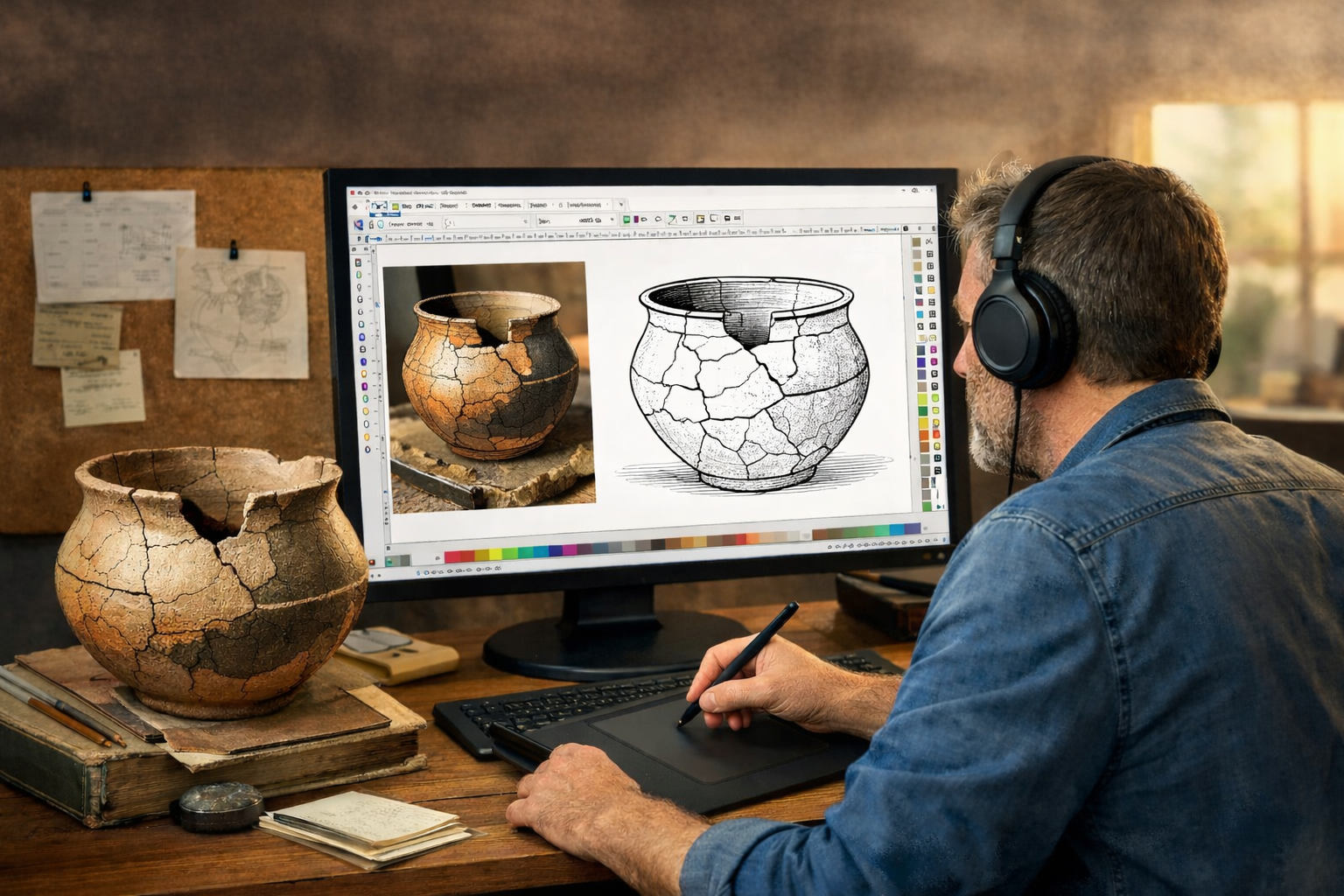
Digital Illustration for Maritime Archaeology
Transform your drawings into digital records—learn how to illustrate archaeological finds using free, professional-grade software.
This self-paced online course introduces you to digital illustration techniques using Inkscape, a free and open-source vector graphics program. You'll learn to produce accurate, publication-ready illustrations of pottery and small finds, enhancing both research and the archaeological record.
Designed for those with a foundation in archaeological illustration, this course is open to participants who have completed the NAS Archaeological Illustration course or can demonstrate equivalent experience.
COURSE CONTENT
-
Step-by-step modules covering core Inkscape tools and illustration workflows,
-
Exercises for hands-on practice,
- Optional live online support sessions with the expert tutor
Self-paced learning with live online support sessions 1pm 5 May, 8pm 7 May, 11am 10 May (BST)
£40 course fee | 5 NAS credits
Learn at your own pace, from anywhere, and gain essential skills for digital documentation in archaeology.
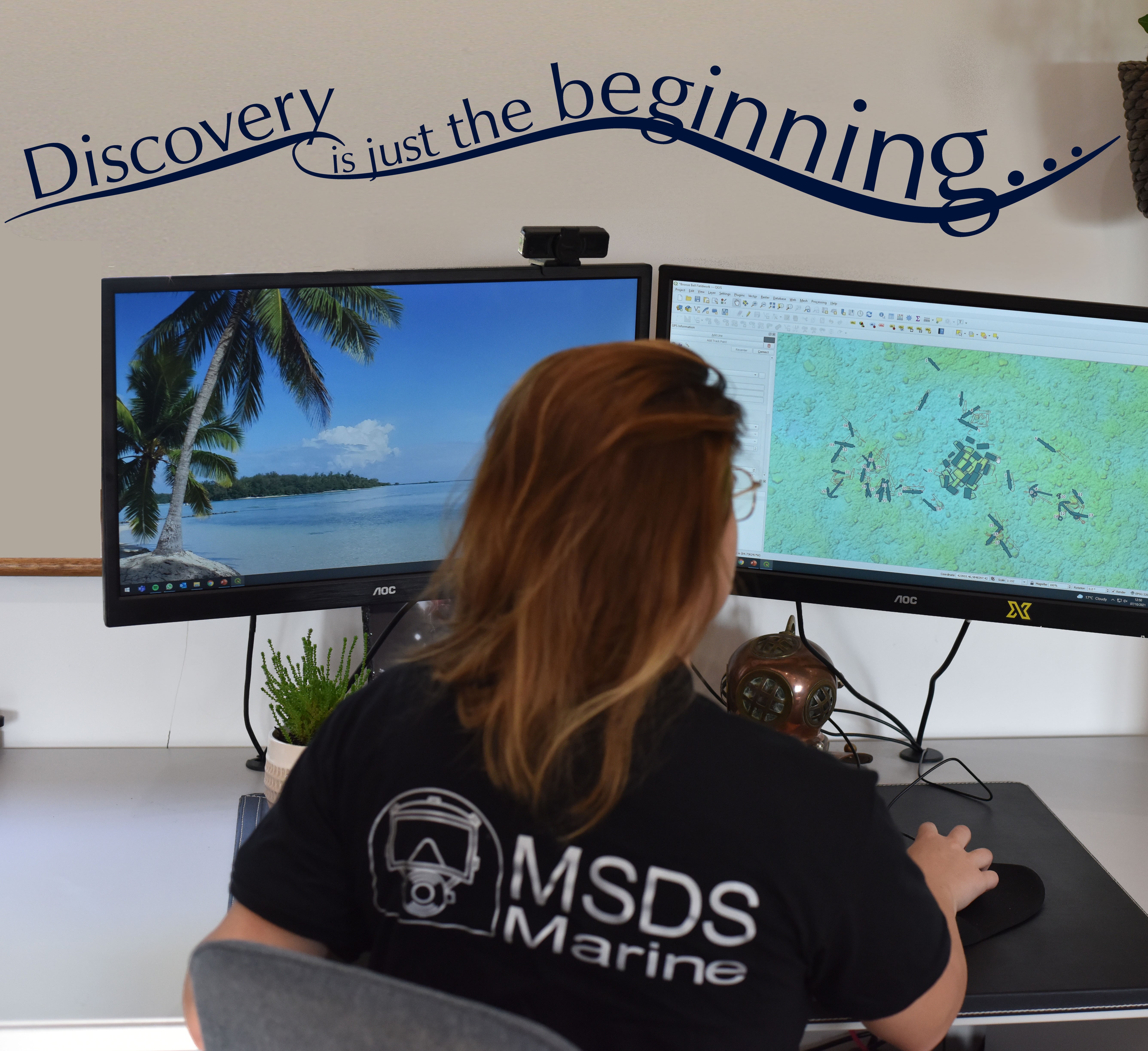
QGIS in Maritime Archaeology 2026
Get to grips with QGIS and start mapping the past—no prior GIS experience required. Learn how to visualise, analyse, and share archaeological data.
This online introductory course is designed for those new to GIS, with a focus on using QGIS, a free, open-source software widely used in archaeology. Through seven short video tutorials (total 1.5 hours), hands-on exercises, and assignments, you'll gain practical skills in setting up projects, sourcing and creating data, using tools, and sharing results—particularly for maritime contexts. Modules are: Introduction to GIS, Setting up a Project, Data Sources, Creating Data, Modifying Data, Interrogating Data, Other Tools, and Displaying and Sharing Data.
The course is self-paced but includes a mandatory one-hour live Q&A session (multiple dates and times in March 2026) with an expert tutor to complete the course and earn
Self-paced with live online help sessions 22 March 11am GMT, 23 March 1pm GMT, 26 March 8pm GMT
£40 course fee | 5 NAS credits.
COURSE CONTENT
- Introduction to GIS
- Setting up a project
- Data sources
- Creating data
- Modifying data
- Interrogating data
- Other tools
- Displaying and sharing data
Ideal for people with no experience of GIS or QGIS including archaeologists, students, divers and heritage professionals.
Run with in partnership with MSDS Marine and MSDS Heritage
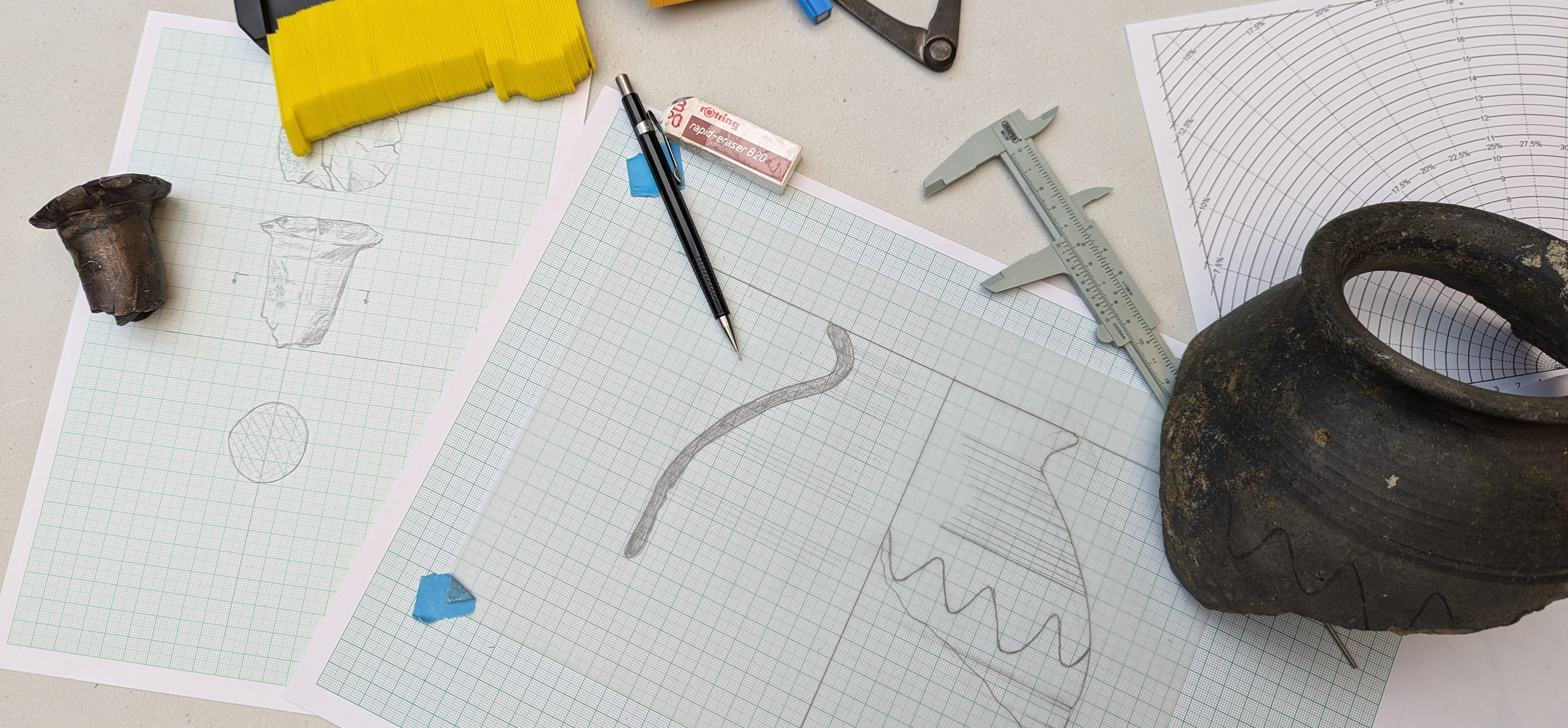
Archaeological Illustration 2026
Bring the past to life on paper—learn the fundamentals of archaeological illustration from home with expert-led guidance and hands-on practice.
This live online course introduces the theory, techniques, and conventions of archaeological illustration, focusing on pottery and small finds. Perfect for beginners, the course combines expert presentations, structured exercises, and personalised feedback—all using simple household objects as stand-ins for real artefacts.
Saturday 10 October 2026 | 9am–5pm GMT.
£40 course fee | 5 NAS credits.
COURSE CONTENT
- Why Archaeological Illustration Still Matters
- Theory: Pottery Illustration Techniques & Conventions
- Practical: Pottery Drawing Exercise
- Theory: Small Finds Illustration
- Practical: Small Finds Drawing
- Putting It into Perspective.
All sessions are live and interactive, with breaks throughout the day. Ideal for students, volunteers, or professionals looking to build skills in archaeological recording and communication.
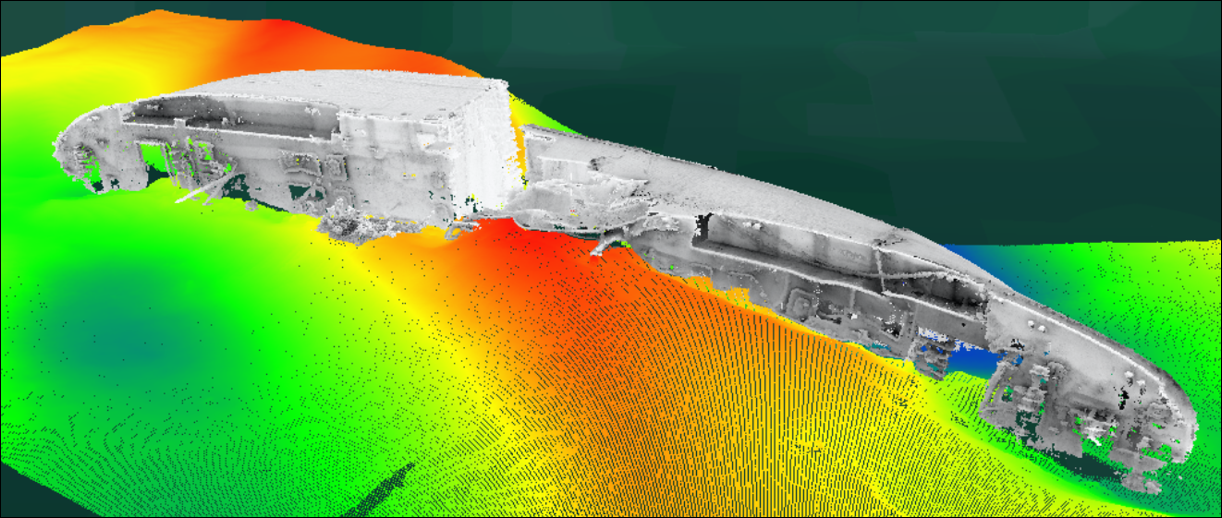
Potentially Polluting Wrecks 2026
Dive safer - Learn to identify explosive and environmental hazards on wrecks and support safe, informed diving on military sites.
This online course is a prerequisite for NAS/MoD diving projects and will equip you to assess, record, and understand the risks posed by military wrecks. You’ll learn how to support the UK Ministry of Defence’s efforts to investigate and mitigate pollution from sunken warships both in UK waters and overseas.
The course includes 4 hours of pre-recorded videos (available ahead of time) and two live online session
24 and 26 November 2026 | 7–9pm GMT.
£40 course fee | 5 NAS credits
COURSE CONTENT
-
Introduction to the MoD Wrecks Management Programme
-
Ammunition on Wrecks
-
Case Studies of real-world wreck investigations
-
How to read ship plans and locate ammunition
-
Underwater ordnance recognition
-
Historic and environmental desk-based assessments
-
Wreck integrity surveys and how to contribute
-
Interactive ID quizzes and opportunities to get involved in upcoming projects
Perfect for divers, archaeologists, and anyone working with or researching military wrecks.
Run in partnership with SALMO, MoD.
Cannon Research and Recording Course
Unlock the secrets of historic artillery and gain practical skills to identify and record cannons both on land and underwater.
This eLearning course explores the development of cannon from the late Middle Ages to the 19th century, focusing on European examples. Learn how to recognise key features of historic cannon, understand their archaeological significance, and apply professional recording techniques.
Self-paced learning | about 4-6 hours total
£55 course cost | 5 NAS credits
COURSE CONTENT
- Introduction to Cannons
- The History and Development of Cannons
- The Cannon Assemblage
- Site Formation and Conservation
- Cannon Wreck Case Studies
- Recording Cannons
- Researching Cannons
- How to 'Read' a Cannon
- The Cannon Detective
Perfect for archaeologists, divers, heritage professionals and enthusiasts. Course development has been supported by a grant from Historic England.
There is a follow-on, in-person practical course taught at various locations on the south coast of the UK. Check the NAS events site for upcoming dates.

Photography and Photogrammetry for Maritime Archaeology
Learn how to capture the past in 3D—create accurate digital models of artefacts, features, and sites using photogrammetry.
This beginner-friendly eLearning course introduces the theory and techniques behind photogrammetry, with a focus on maritime archaeology. Explore photography fundamentals, equipment setup, survey planning, data processing, and how to avoid common errors. You’ll gain the knowledge to generate high-quality 3D models for research, monitoring, and presentation.
Note: A reasonably modern computer with an AMD or Nvidia graphics card is required for 3D modelling. MAC users will be limited to one recommended software option.
Self-paced learning | about 4-6 hours total
£55 course cost | 5 NAS credits
COURSE CONTENT
- Photography and Photogrammetry for Maritime Archaeology,
- Development and Uses of Photography in Archaeology
- Introduction to Photogrammetry
- Equipment
- Photography Basics and Techniques
- Survey Planning for Photogrammetry
- Processing your Data
- Avoiding Errors
- Optimising Outputs and Publishing Results
- Monitoring Archaeological Sites
Ideal for archaeologists, students, divers and heritage enthusiasts. Course development has been supported by a grant from Historic England.
There is a follow-on, in-person practical course taught at Fort Cumberland, Portsmouth, UK. Check the NAS events site for upcoming dates.

Dive safer - Learn to identify explosive and environmental hazards on wrecks and support safe, informed diving on military sites.
This online course is a prerequisite for NAS/MoD diving projects and will equip you to assess, record, and understand the risks posed by military wrecks. You’ll learn how to support the UK Ministry of Defence’s efforts to investigate and mitigate pollution from sunken warships both in UK waters and overseas.
The course includes 4 hours of pre-recorded videos (available ahead of time) and two live online sessions on 18 and 20 November 2025, 7–9pm GMT. Participation in all elements is required to earn 5 NAS credits.
£40 course fee.
Course content (pre-recorded modules):
-
Module 1: Introduction to the MoD Wrecks Management Programme
Understand the UK MoD’s global work in researching, monitoring, and remediating pollutants from historic military wrecks. -
Module 2: Ammunition on Wrecks
Ordnance expert Tom Harrison (MSDS Marine) shares what explosive devices may be found, how they appear after decades underwater, and why they must never be disturbed. -
Module 3: Pollution on Wrecks
MoD Wreck Environmental Scientist Polly Hill explains the environmental risks posed by decaying vessels and how divers can help detect and mitigate pollution. -
Module 4: Case Studies
Real-world wreck investigations, including:-
Toxic Legacy (Asia Pacific) – Matt Carter and Freya Goodsir,
-
RFA Darkdale – Matt Skelhorn,
-
USS Prinz Eugen – Polly Hill,
-
HMS Royal Oak – Matt Skelhorn,
-
Live Online Sessions
18 and 20 November 2025, 7–9pm GMT
Deepen your learning with expert-led sessions including:
-
How to read ship plans and locate ammunition,
-
Underwater ordnance recognition,
-
Historic and environmental desk-based assessments,
-
Wreck integrity surveys and how to contribute,
-
Interactive ID quizzes and opportunities to get involved in upcoming projects,
Perfect for divers, archaeologists, and anyone working with or researching military wrecks.
Run in partnership with SALMO, MoD.
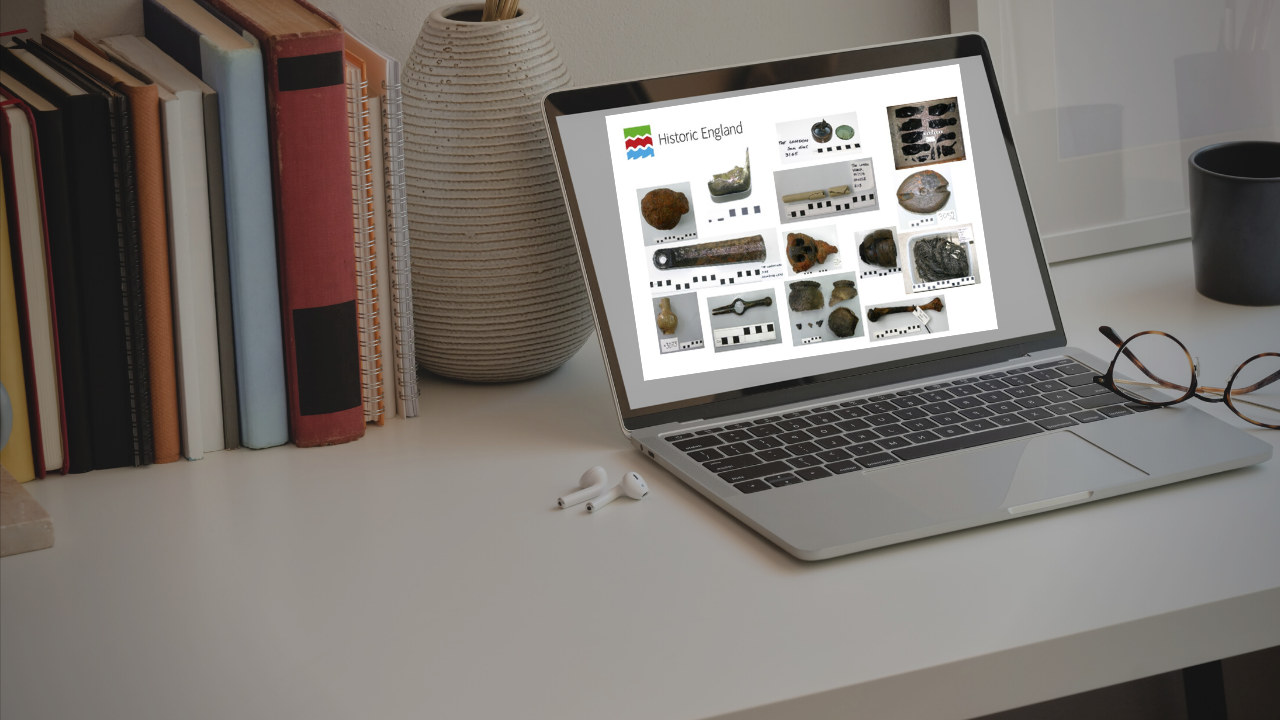
Discover how science helps unlock the stories of the sea—learn the principles behind conserving and analysing marine archaeological finds.
This online course offers a theoretical introduction to archaeological science and conservation, focusing on artefacts and ecofacts recovered from wreck sites. It’s perfect for anyone interested in how scientific methods are used to preserve and interpret maritime heritage.
Through 3 hours of pre-recorded videos and a live online discussion panel (1–4pm BST, Wednesday 22 October 2025), you’ll explore key conservation techniques and materials science fundamentals, along with real case studies.
Pre-recorded modules are:
-
Sampling and Plant Remains from Wreck Sites,
-
Zooarchaeology of Wreck Sites,
-
Introduction to Archaeological Conservation and Marine Materials,
-
Live Online Discussion Panel with expert conservators.
This course also complements the practical in-person course on Archaeological Science and Conservation of Marine Finds held at Fort Cumberland, Portsmouth (7 November 2025).
Course fee: £40 | 5 NAS credits
Suitable for divers, archaeologists, students, and anyone curious about what happens after artefacts are recovered from the sea.

Bring the past to life on paper—learn the fundamentals of archaeological illustration from home with expert-led guidance and hands-on practice.
This live online course introduces the theory, techniques, and conventions of archaeological illustration, focusing on pottery and small finds. Perfect for beginners, the course combines expert presentations, structured exercises, and personalised feedback—all using simple household objects as stand-ins for real artefacts.
Saturday 8 November 2025 | 9am–5pm GMT.
£40 course fee | 5 NAS credits.
Topics covered are: Why Archaeological Illustration Still Matters, Theory: Pottery Illustration Techniques & Conventions, Practical: Pottery Drawing Exercise, Theory: Small Finds Illustration, Practical: Small Finds Drawing, and Putting It into Perspective.
All sessions are live and interactive, with breaks throughout the day. Ideal for students, volunteers, or professionals looking to build skills in archaeological recording and communication.
